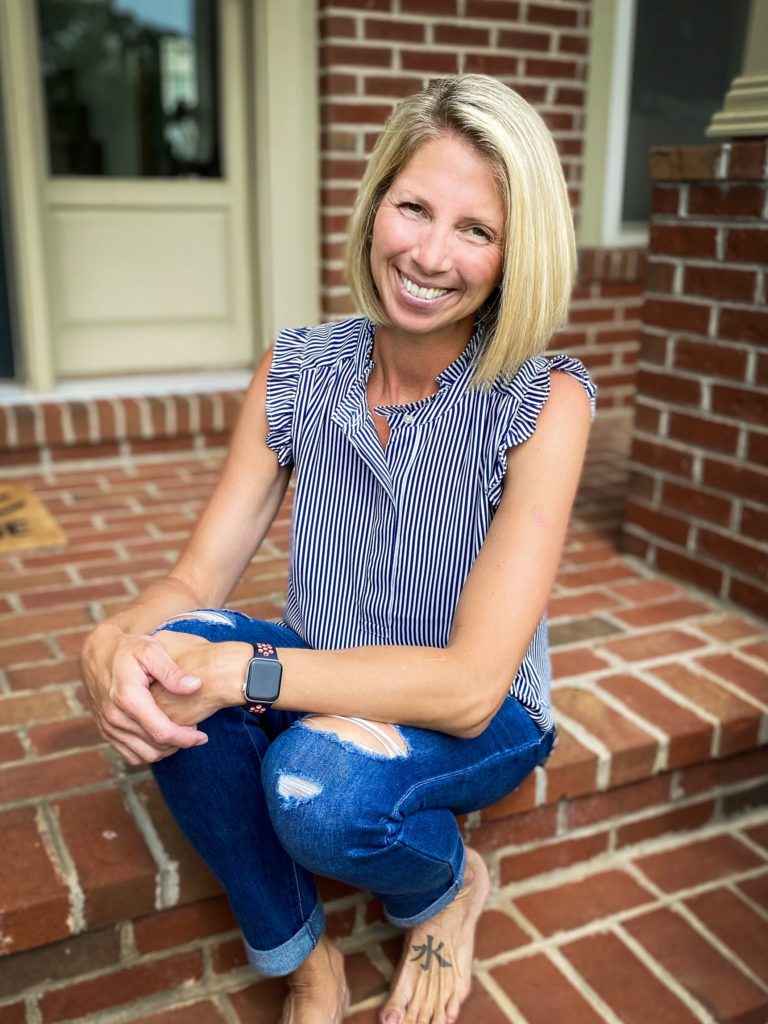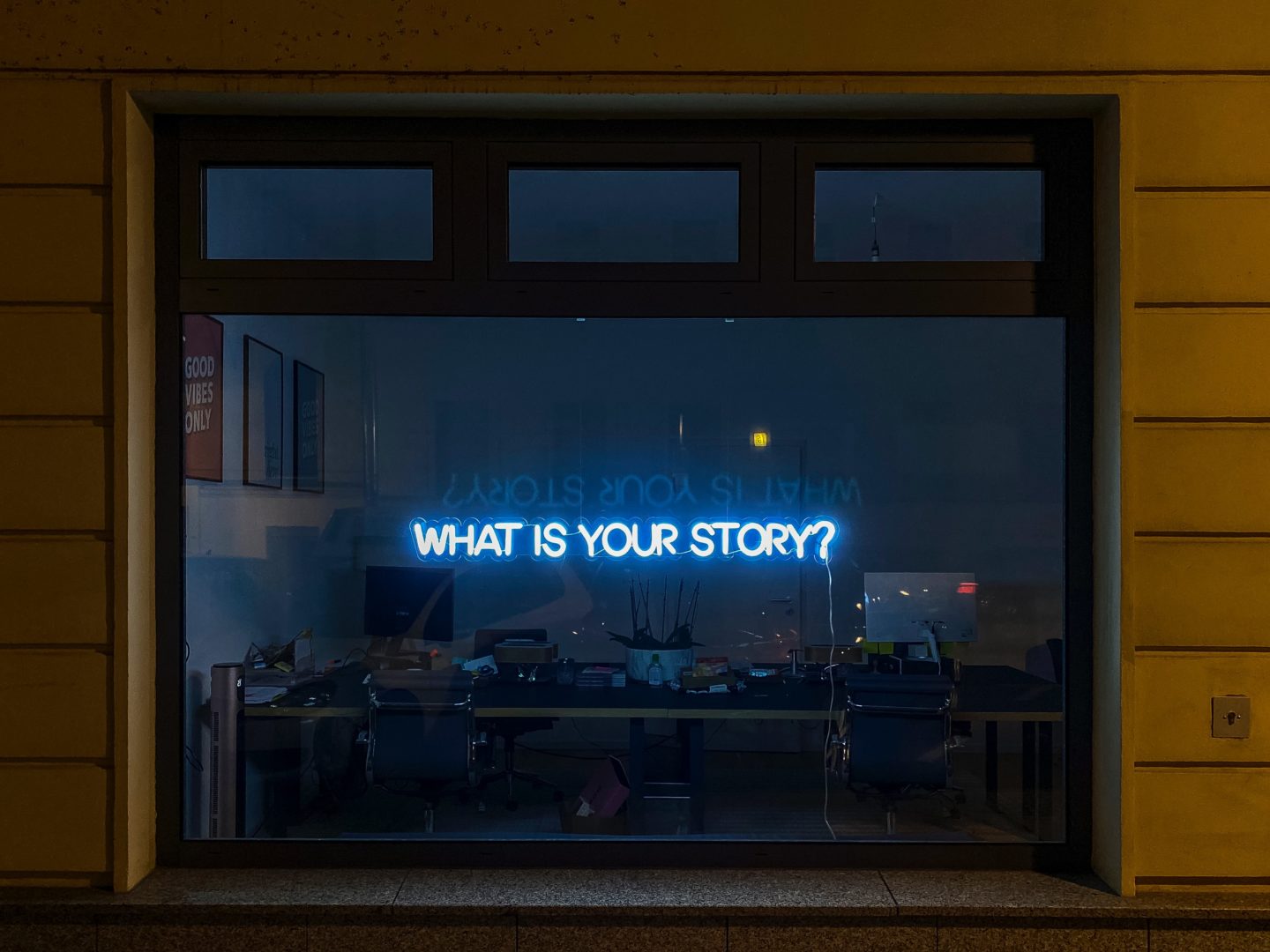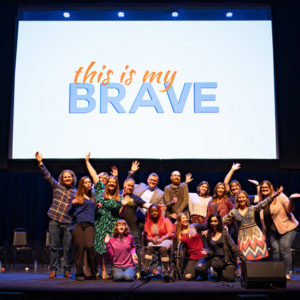Speaking Out to End Stigma
| Michelle Obama said it best, “Your story is what you have, it’s what you’ll always have. Even when it’s not pretty or perfect. Even when it’s more real than you want it to be. It’s something to own.” But owning your story requires time and a hope for understanding and acceptance…there’s great fear in not only acknowledging your story but also in sharing it, and I’ve spent the past few years preparing myself to let go of that fear. Our society fosters the assumption that how we present ourselves is an accurate representation of who we are and the lives we live. The clean home, well-manicured yard, successful career, happy, well-behaved children. What gets posted on social media, discussed with co-workers and friends at a get-together are rarely indicators of someone’s struggles, especially if that struggle is with a mental illness. I’m proof of this, daily. Last fall I found myself lying on the bathroom floor, sobbing, my husband once again unsure of how to pull me out of it. Thirty minutes later I smiled and laughed through conversation with a glass of wine in my hand, terrified of people knowing what had occurred one hour prior. So here I am, choosing to publicize the quiet battle I’ve faced every day for the past 30 years, hoping to help break the stigma of what our society thinks someone struggling with their mental health looks like. I was 12 years old when I first experienced depression and suicidal thoughts. During my junior year of high school, I started to self-harm and by my senior year I had attempted suicide. My friends didn’t know I was taking anti-depressants, or that I imagined the world better off without me being a part of it. I was on the honor roll, won district titles in swimming, and had a close circle of friends. My struggles with my mental health seemed to go into overdrive when I went off to college; the desperation to self-destruct was often at an all-time high, and yet my good moods became almost catastrophic. I spent those years in a vicious cycle of ups and downs; making decisions I’m not proud of and pushing people away. There were aspects of my illness that helped paint the picture of a successful and driven college girl, but the downward spiral that came with it was anything but that. Over the years I continued to experience severe bouts of depression, found ways to self-harm, and at times became withdrawn from the people and things I love. The rollercoaster of my mental state became exhausting to manage and I realized I was wrong in thinking that ironing out the wrinkles of my adolescence would help it stabilize. In the summer of 2015, after years of on-again, off-again therapy and anti-depressants, my mental illness gained control and I found myself sitting on the kitchen floor with a steak knife pressed against the inside of my wrist. A week later I was diagnosed with bipolar disorder. While my mental state improved, I eventually made the decision to stop taking medication. Even though the anxious thoughts, impulsive decisions, and depressive episodes were gone, so was my personality. I was able to manage symptom-free for a couple of years, but with every rise there comes a fall and I slowly started to become unstable in the fall of 2019. I made the case that I didn’t need to go back on medication, that I could utilize other resources and talk therapy, and that’s just what I’ve been trying to do for the past year and a half. My ups and downs still occur, with the depression lasting for days and even weeks at a time, and the effort I have to make to keep my head above water can become draining. For years I thought I could manage this alone, but I was wrong. Mental health is just as real and as important as physical health and there are so many others who suffer and hide their struggles due to embarrassment or a fear of not finding acceptance. I’m married to the boy I fell in love with when I was 11, I have four unbelievably amazing and kind children, and a career I’ve worked hard for. I’ve run marathons, completed a triathlon, was a collegiate swimmer and I navigate that life with a mental illness. My story won’t be the same as another’s, but our connection will come from the silence we’ve kept. The fear of speaking out or asking for help has to be eliminated. I’d always thought telling my story was going to be the hardest thing I’d ever had to do, but in reality, hiding it all these years has been the real challenge. Staying silent doesn’t help those who need to hear the noise, it only allows the notion that mental illness is shameful, to flourish. |

About the Author: My name is Emily Ellingson and I’ve been living with a mental illness most of my life. Up until recently, I’d chosen to hide that illness from friends and most of my family. However, the realization that what people see is not a clear representation of who I am or the challenges I face daily, has led me to tell my story in hopes that it could help bring light to the struggles people face with their mental health and help end the stigma surrounding mental illness. I’m married with four children, I have a career outside of the home, and I’ve come to use my Peloton as part of my therapy. I met Jen several years ago through a book club and mutual friends from Virginia Tech and when she started blogging about her struggles with a mental illness, I was in awe…and just not quite ready to share my own story. I appreciate your consideration in posting my story.

